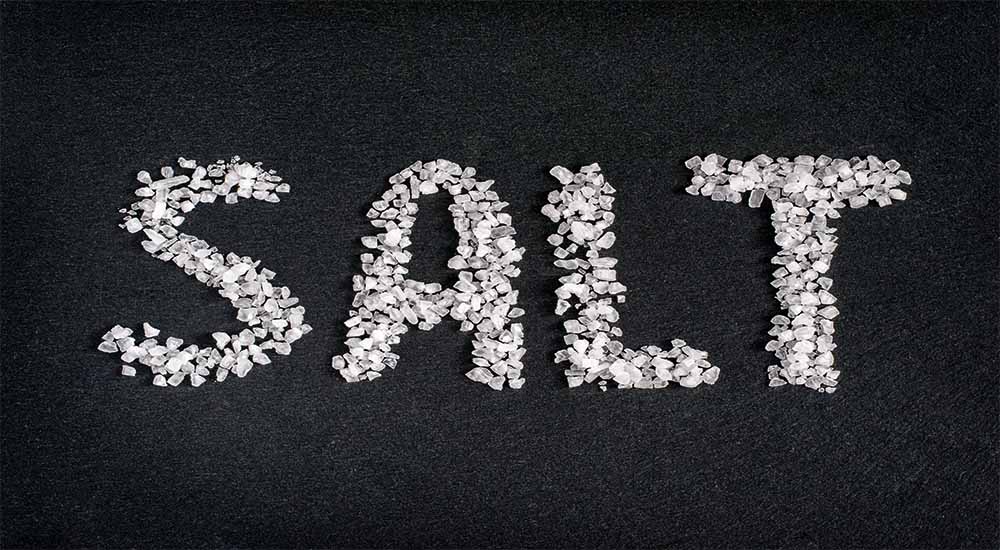Salt and Autoimmune Disease? Yes!

Autoimmune disease is on the rise
Autoimmune disease incidence is on the rise and its effects are devastating. We have been successfully treating autoimmune disease for many years.
Our training in functional medicine and root cause medicine has caused us to appreciate the sheer genius that is the human immune system and what is required to normalize its function and slow or reverse the effects of autoimmune disease.
Traditional medical treatment for autoimmune disease stems from the viewpoint that your immune system is stupid, has gone rogue, and the only course available to you is to suppress it with drugs, dangerous drugs with life-threatening side effects.
We completely disagree.
Should your immune system be supported or suppressed?
Here at Root Cause Medical we always disagreed with the approach of suppressing the immune system and wrote about it in our book The Gluten Effect back in 2009. It would take a few years after we published, but starting in 2012 our protocol for autoimmune disease was vindicated by research.
Research validated our premise that the immune system deserved to supported, not suppressed.
Our treatment of autoimmune diseases is successful, due to our appreciation of the importance of making dietary and lifestyle changes and the need to “undo” the stress that has been placed upon the immune system and gut.
We try to stay on the cutting edge of autoimmune disease research and therefore wanted to share data that not only validates our root-cause approach but proves that autoimmune diseases can be greatly improved through natural means.
How does salt affect your immune system?
The typical or Standard American Diet (SAD) is high in salt, saturated fat, and chemicals. Scientists have long felt that our unhealthy diet played a role in the ever-increasing rates of autoimmune disease, but there is now research to fully support that supposition.
We know that the immune system becomes revved up, overstimulated, and hypervigilant in the face of autoimmune disease. This “amped up” state results in the immune system attacking self tissue (a part of your body) instead of a legitimate bad guy.
The “bad guys” the immune system attacks can be food, infections, toxins, or a combination of all three.
The immune system is made up of a variety of cells, two of which are helper cells and suppressor cells. They work together to keep the immune system in balance.
Helper cells assist in the attack of bad guys while suppressor cells act as the “voice of wisdom” to make sure the helper cells don’t get out of hand and “trigger happy”. You only want the “bad guys” attacked, not the good guys, or, as in the case of autoimmune disease, something that looks “similar” to a bad guy.
A particular type of helper cell, called Th17, is associated with causing autoimmune disease when it’s over-activated. It has been linked to the development of a wide variety of autoimmune diseases including:
- multiple sclerosis
- psoriasis
- type I diabetes
- rheumatoid arthritis
High salt triggers an enzyme that creates inflammation and autoimmune disease
A trigger that increases Th17 production is the amount of salt in our bloodstream. There’s literally a “salt sensing” enzyme that will cause increased production of this immune cell in the presence of high blood sodium levels.
Since increased Th17 results in increased inflammation, this is an activity that will move you towards degenerative disease and autoimmune disease.
Researchers point out that the sodium content of fast food and processed food can be more than 100 times higher than a similar meal cooked at home.
Another association of salt and inflammation
Researchers found that those on a high salt diet (in hindsight, they admitted it was probably more of an “average” salt diet based on the vast quantities Americans typically consume) were found to have higher levels of white blood cells called monocytes.
Monocytes signal inflammation and are present in greater numbers in autoimmune disorders.
The scenario rolls out like this: Salt is causing Th17 to be more active, creating inflammation and initiation of autoimmune tendencies, while the monocytes signal the presence of the inflammation caused by the excess salt.
Inflammation rises and anti-inflammatories fall – a dangerous combination
Also associated with the high salt diet was not only more inflammation but lower natural anti-inflammatories, the substances designed to counter the ill effects of inflammation. High inflammation and low anti-inflammatories are an unhealthy recipe to create ALL degenerative type diseases, including autoimmune disease.
To put the salt theory to the test, researchers looked at patients with multiple sclerosis (M.S.), following them for the course of a few years, evaluating their diets.
The higher sodium group had three to four times the number of exacerbations of their M.S. as compared to the lower sodium intake participants. Further, the group ingesting more sodium developed more lesions in their brains, 14 vs. 6, over the course of the several year study.
There are some doctors who don’t think you should salt your food at all. I am not of that opinion currently. Preparing meals at home, I believe you can cook with Himalayan sea salt in moderation. As long as you don’t eat junk food, fast food, or overly processed foods, the sodium level in your bloodstream should be fine.
We treat the autoimmune disease successfully
Our successful autoimmune disease program involves the identification of stressors that are overtaxing the immune system. The stressors tend to be one or more of three potential contributors:
- Food
- Infection
- Toxin
Within the food, the category is included the identification of possible food sensitivities, allergies, poor food choices, and now, excess salt, which comes along with overly processed junk and fast food.
After the correct stressors are identified and removed, the next step is to normalize the function of the immune system and heal the leaky gut, the latter is typically present with autoimmune conditions.
Blood test offers early warning of autoimmune disease
Are you not feeling your best and want to know if you are developing any autoimmune tendencies?
Perhaps autoimmune disease runs in your family and you want to ensure you’re not on the same path as certain family members?
Good news: there is a blood test that can tell you if you are in the early stages of developing autoimmune disease. When I say “early” I mean it could identify problems years or months before a diagnosis would ever occur. It’s incredibly important to catch such changes early and this test does exactly that.
Do you know someone suffering from an autoimmune disease?
You likely know someone suffering from autoimmune disease. It is unfortunate the way traditional medicine views and treats it. The dangerous drugs prescribed do not offer a cure, they simple “control” symptoms, symptoms that continue to worsen because the true root cause is not addressed.
I don’t think the approach of using dangerous drugs is fair to anyone when there’s so much promising research to support natural ways to improve, and potentially reverse autoimmune disease.
What if the autoimmune disease could be improved, prevented, and even reversed? I believe it can. We certainly have treated a tremendous number of patients who have improved and reversed their conditions.
If you have an autoimmune disease and refuse to change your diet, we cannot help you.
Of course, it takes some commitment to reverse an autoimmune condition. But if you or someone you know has an autoimmune disease, and is ready to do something about it, we can help.
If you have one autoimmune disease you are 3 to 10 times more likely to develop another. In my opinion that can be prevented by taking the steps we’ve outlined.
Do you need help with your health?
We have the diagnostic and testing tools, the clinical experience, and a different medical approach to discovering the root cause of why you have the symptoms that are bothering you. As long as you are ready to make some dietary and lifestyle changes, we can help you. We will "hold your hand" through the changes, step by step, to make each step an easy one. We are located in Clearwater, FL, at 1000 S Ft Harrison, at the corner of Ft. Harrison Ave. and Magnolia St. There is plenty of parking space directly accessible from Ft Harrison. If it is not convenient for you to come to Root Cause Medical Clinic, we offer telehealth/telemedicine consultations to residents of certain states. Call us for details.
Contact us for a Consultation – Call 727-335-0400

Dr. Vikki Petersen DC. CCN
Founder of Root Cause Medical Clinic
Certified Functional Medicine Practitioner
Dr Vikki Petersen is a public speaker, author of two books, several eBooks and creates cutting edge content for her YouTube community. Dr Vikki is committed to bringing Root Cause Medicine and its unique approach to restoring health naturally to the world.
Ask a Doctor
Have a health concern you'd like to speak with a doctor about? Or just want clarity on a subject? Ask Us!
Featured Articles
Popular Stories
References:
Grateful acknowledgment to the team at nutritionfacts.org who tirelessly search through the hundreds of thousands of studies each year to find the true gems.
- Binger KJ, et al. Sodium chloride, SGK1, and Th17 activation. Pflugers Archive. 2015 Mar;467(3):543-50.
- Zhou X, et al. Variation in dietary salt intake induces coordinated dynamics of monocyte subsets and monocyte-platelet aggregates in humans: implications in end organ inflammation. PLoS One. 2013 Apr 4;8(4):e60332.
- Sundström B, et al. Interaction between dietary sodium and smoking increases the risk for rheumatoid arthritis: results from a nested case-control study. Rheumatology. 2015 Mar;54(3):487-93.
- Farez MF, et al. Sodium intake is associated with increased disease activity in multiple sclerosis. Journal of Neurology, Neurosurgery & Psychiatry. 2015 Jan;86(1):26-31.
- Kleinewietfeld M, et al. Sodium chloride drives autoimmune disease by the induction of pathogenic TH17 cells. Nature. 2013 Apr 25;496(7446):518-22.


